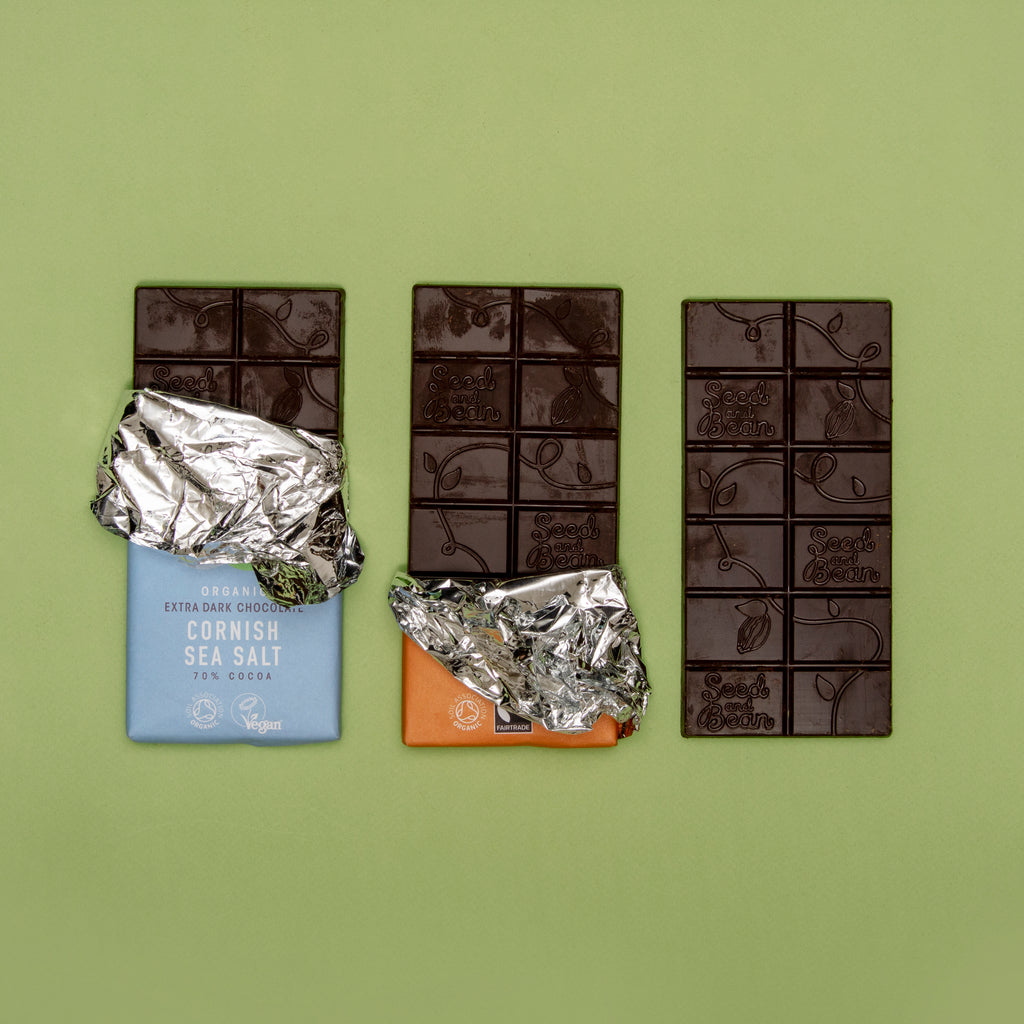It's not an everyday impulse, or activity of choice, to examine the small print on the back of the packaged foods we buy; one assumes that if it's plastic, it lives in the recycling, and anything else is general waste. That would be understandable, but in reality, this is not the case.
The packaging we have been trusting very often betrays us with the statement ‘Not currently recyclable,’ a blow below the belt that would knock the environmentalist air out of even the most passionate eco-warrior. Realistically speaking, the modern working person struggles even to find the time to have a cup of tea and so conducting an exhaustive in-home search mission for recyclable packaging just isn’t practical. So - you migrate to the cold kitchen tiles (which probably should have been hoovered last week) and before you know it, you’re sat cross-legged, sifting through the pit of rubbish like a nine-year-old girl in a sand pit (only without the excitement) and it doesn’t take much of an inspection to distinguish just how much waste can’t in fact be recycled. Feeling deceived, confused, or cheated perhaps? It’s not surprising. And the predicament, initially, doesn’t seem to have a solution. If over half of your waste cannot be recycled, or tells you rather unhelpfully to ‘check locally’ and buying a cucumber without its plastic straitjacket becomes mission impossible, hope for a cleaner future can shrink. But regardless of the difficult situation, and the fact that currently only one third of plastic packaging is being recycled in the UK, there are still steps we can take in order to reduce this waste and this impact.
We all have a vague understanding that plastic is made from oil which is a fossil fuel and therefore not the best resource to use for the planet. However, many of us aren’t aware that since the beginning of production in the 1950s, 8.3 billion tonnes of it has been produced (that’s the weight of one billion elephants by the way) and of that, only a mere 9% has been recycled. The horrifying reality is that we are still living in, and being smothered by a blanket of plastic that could circle the earth a bewildering four times. We have become accustomed to seeing the colourful fragments of plastic tumbling around the streets, but are we accepting, or ignoring this growing waste?
This material is simply wasteful; there are preposterous quantities of it in each and every article we lay our hands on; it’s like we are having a love affair with the wretched material, and while we are lucidly dreaming of alternate ways to replace it, we seem reluctant to want to initiate this change. In fact, the only use this substance can have is as a hazardous toy for children, or as a trophy for a magpie to collect - it requires replacing. Now.
Last week a discovery of, what may seem like an ancient chocolate bar to many, discontinued in 1990 was made on a beach near Exmouth. A man and his daughter found the long forgotten ‘Marathon’ bar which, for the uninitiated, was the ancestor of the now popular ‘Snickers’ bar. The wrapper was in perfect condition. That’s correct - it was in perfect condition 29 years after it was first produced. Surprising? Yes. Comical? Possibly. But one thing is certain, this story is also extremely eye-opening. Biodegradable packaging is a necessity. This is why it is crucial to support companies like Seed and Bean who are dressing their chocolates in wrappers that are compostable, and will not linger around happily sunbathing and floating in the sea for tens, or hundreds of years.
Birds are naive animals - their minimal brain capacity doesn’t allow them to differentiate between food and, yes, you’ve guessed it, plastic. In a recent study it was found that sea birds carry between 250 and 300 pieces of plastic in their stomachs (these are individuals who are only 90 days old by the way) which makes up 15% of their total body mass. But it gets worse. To transfer that to human terms, that would be the equivalent of six to eight kilograms of plastic, or 12 large pizzas in your stomach. It’s not just packaging that has become the bird’s new main food group, as other plastics are also secreted into the ocean, but that is no excuse for us to remain static and continue to shop mindlessly without considering the implications our choices have on the environment.
The question many of us should ask is ‘what is the real journey of the wrapper we buy and eat?’ And perhaps more importantly, ‘where does that packet end up? Well, as mentioned above, only a minuscule proportion of the colourful killers are recycled - the remaining majority either end their lives as food for helpless animals in the ocean, in landfill sites or sold, so that the problem ends up being in another country’s hands. We must remember that the recycling claims are often just that - claims, and so we can’t be certain that the wrapper will be dealt with adequately unless it is biodegradable or compostable.
Seed and Bean are one of a handful of businesses which are considerate of both the earth’s and consumer’s well being, and the only brand in the UK with a 100% ethical pass mark accreditation. Their chocolate’s are delicious and made from 100% organic ingredients; organic produce often contains more nutritional value, giving you a real excuse to eat more chocolate (if you require one) and it means you can sleep peacefully knowing that the production of your treat has been ethical and fair. Their packaging is also 100% compostable, leaving you with a light heart after your indulgence, as through the purchase you don’t add to the vicious cycle of waste. Through the purchase of the chocolate, you support a company that is doing amazing things which also means you too will be doing amazing things. It’s a win-win situation.
Thank you to Wiktoria Jazwinska for this amazing article, a 17 year-old passionate sustainability advocate, blogger and recipe creator shares the reasons we must reduce waste, and the importance of choosing compostable packaging. If you enjoy reading this, make sure to check out her instagram (@wikis.vital.way) and blog https://afewmoments.home.blog .











